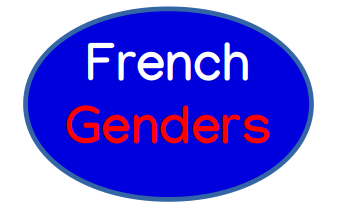Nouns referring to human beings
and animals close to them
Gender of nouns referring to human beings, unlike others, is "most" of the time semantically motivated so the grammatical gender (masculine / feminine) matches the natural gender or sex (male / female). This is not the case for most animals (see Animals), except for the one raised or hunted by
-----------------------------------------------------------------------------------------------------------------------
- Unmarked masculine nouns (with NO feminine counterpart) referring to a MAN:
Apollon (Apollo)
appelé(conscript),
as(ace),
aumônier(chaplain),
bagnard(convict),
baladin(wandering entertainer),
bandit,
beauf(brother-in-low),
benêt(simpleton),
blanc-bec(tenderfoot),
bourreau(executioner),
boy-scout,
brigand,
caïd(big chief),
caméraman,
Casanova,
centurion,
charlatan,
cheminot(railwayman),
chevalier(knight),
cheik(sheik),
chouan(counter-revolutionary),
clerc(clerk),
clown,
cocher(coachman),
commis(assistant/servant),
cornac(mahout),
confesseur(confessor),
cow-boy,
croisé(crusader),
curé(parish priest),
dandy,
déserteur(deserter),
dictateur(dictator),
docker,
don Juan,
émir(emir),
escroc(crook),
fantassin(foot soldier),
fakir(fakir),
